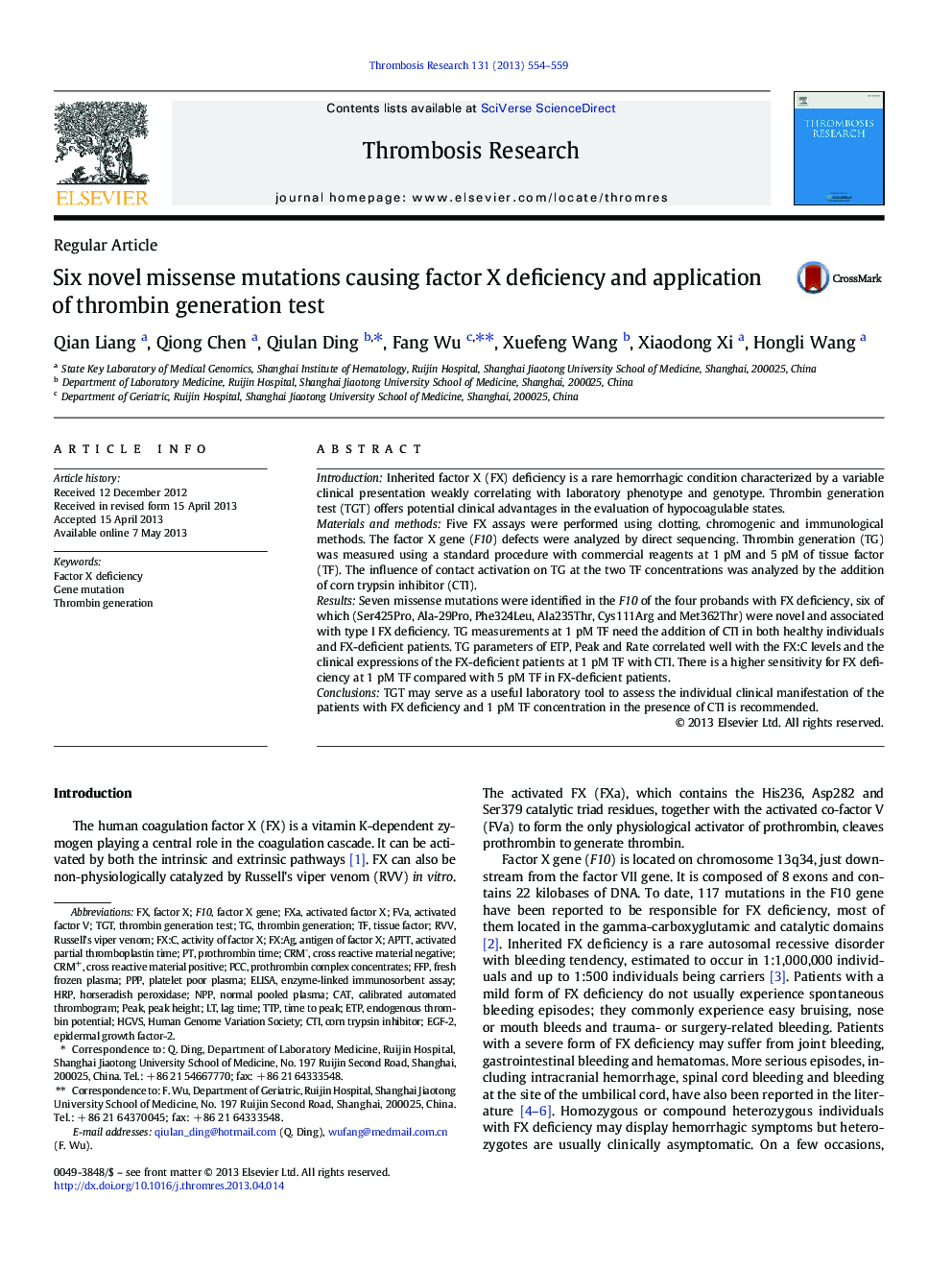| Article ID | Journal | Published Year | Pages | File Type |
|---|---|---|---|---|
| 3027190 | Thrombosis Research | 2013 | 6 Pages |
IntroductionInherited factor X (FX) deficiency is a rare hemorrhagic condition characterized by a variable clinical presentation weakly correlating with laboratory phenotype and genotype. Thrombin generation test (TGT) offers potential clinical advantages in the evaluation of hypocoagulable states.Materials and methodsFive FX assays were performed using clotting, chromogenic and immunological methods. The factor X gene (F10) defects were analyzed by direct sequencing. Thrombin generation (TG) was measured using a standard procedure with commercial reagents at 1 pM and 5 pM of tissue factor (TF). The influence of contact activation on TG at the two TF concentrations was analyzed by the addition of corn trypsin inhibitor (CTI).ResultsSeven missense mutations were identified in the F10 of the four probands with FX deficiency, six of which (Ser425Pro, Ala-29Pro, Phe324Leu, Ala235Thr, Cys111Arg and Met362Thr) were novel and associated with type I FX deficiency. TG measurements at 1 pM TF need the addition of CTI in both healthy individuals and FX-deficient patients. TG parameters of ETP, Peak and Rate correlated well with the FX:C levels and the clinical expressions of the FX-deficient patients at 1 pM TF with CTI. There is a higher sensitivity for FX deficiency at 1 pM TF compared with 5 pM TF in FX-deficient patients.ConclusionsTGT may serve as a useful laboratory tool to assess the individual clinical manifestation of the patients with FX deficiency and 1 pM TF concentration in the presence of CTI is recommended.
